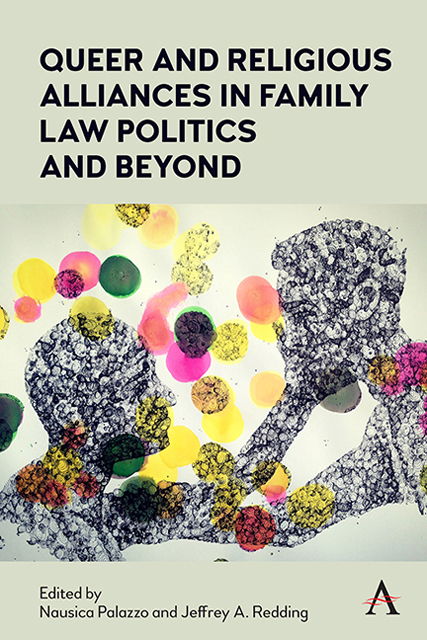Chapter 2 - Custom, Preference, or Nature?: Mormon Polygamy, Same-Sex Marriage, and Natural Law Theory
Published online by Cambridge University Press: 09 December 2022
Summary
A central claim of natural law theory is that moral reality exists independently of human beliefs about that reality. “Moral laws are propositional realities, ‘dictates of reason’, not character traits, practices, or cultural creations.” Moral reality is reflected in the natural law; no law can lay claim to obedience if it lacks this connection.
Yet history is replete with natural law theorists who confused their beliefs about the natural law for the natural law itself. The nineteenth-century campaign against Mormon polygamy is a case study that has echoed in recent debates about LGBTQ access to marriage. The federal government prosecuted and imprisoned polygamous Mormon husbands, revoked common law privileges and constitutional rights, and legally dissolved the Mormon church while seizing most of its assets. More than a century later, polygamy continues to generate legal commentary, especially in debates about marriage equality.
Nineteenth-century anti-polygamist arguments and contemporary defenses of traditional marriage each illustrate the dangers and pretensions of natural law theory. Anti-polygamists justified their attacks on Mormon polygamy with appeals to Protestant Christian morality, a sexist theory of republican self-government, and White supremacy, rooting each of these in the natural law. Today, of course, U.S. laws cannot be justified by their mere coincidence with Christian morality. Though gender imbalances remain, women are now entitled to full participation in representative government and public life. White supremacy also persists but is illegal in government and disreputable in society. Yet, anti-polygamists were confident of the objective truth of their premises and the resultant conclusion that polygamy violated the moral order; it was the passage of time that exposed these purportedly objective truths as merely customary values held by nineteenth-century White Americans.
Natural law defenders of traditional marriage made the same mistake in a different way. They argued that the defining characteristic of marriage is reproductive sexual union, a definition now rejected by most Americans—including, one suspects, most believers. Seventy percent of Americans, including a majority of political conservatives, support same-sex marriage, and nearly two-thirds of American women of child-bearing age, including virtually all believers, use some form of contraception. Rather than mistaking widely held social conventions for the objective moral order, as did the nineteenthcentury anti-polygamists, traditional marriage defenders have mistaken their sectarian religious beliefs about marriage for that order.
- Type
- Chapter
- Information
- Publisher: Anthem PressPrint publication year: 2022

